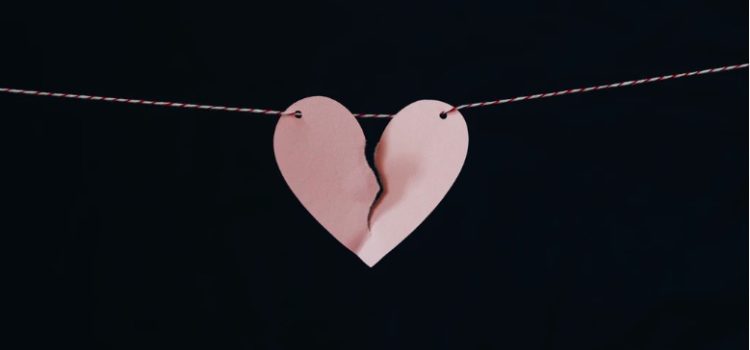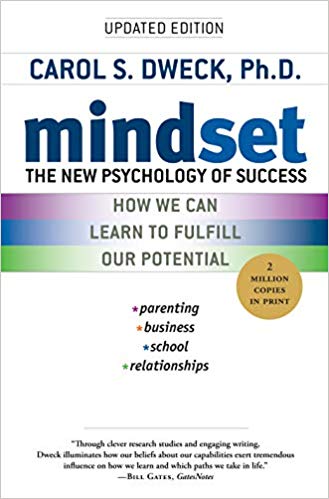

This article is an excerpt from the Shortform summary of "Mindset" by Carol Dweck. Shortform has the world's best summaries of books you should be reading.
Like this article? Sign up for a free trial here .
We all experience rejection in our lives, whether it be in a relationship, after a job interview, or in a social situation. Coping with rejection can be difficult: What’s the best mindset for learning how to cope with rejection?
Whether you have a fixed or growth mindset affects the course of your personal relationships. Mindset helps explain:
- Why people work against their own interests in relationships
- Why relationships devolve into warfare
- Why some relationships succeed and others don’t
We’ll cover how having a growth mindset helps you cope better with problems in your relationship and learn how to cope with rejection.
Coping with Rejection
The road to satisfying relationships is marked with disappointments, mistakes, and most devastating of all, rejection. So how do you cope with rejection? When they experience setbacks, some people are able to heal and move on to better relationships, while others remain stuck or scarred. The difference is mindset.
Researchers recruited 100 people to describe their experience of rejection. The study compared how those with fixed mindsets handled it versus those with growth mindsets:
- People with fixed mindsets felt judged and labeled as a failure or unlovable. They reacted angrily to the person who rejected them and were obsessed with getting revenge or making that person suffer.
- People with growth mindsets wanted to understand, learn, and move on to more successful relationships. They didn’t feel labeled but instead looked for insights about themselves and lessons such as the importance of communicating. Rather than revenge, their top goal was to forgive. This may be the most effective method of coping with rejection.
So how do you learn how to cope with rejection? Practice having a growth mindset in every area of your life. As an example of a growth-oriented response to an extreme rejection, one woman described being stood up at the altar on her wedding day — the groom had taken off on their planned honeymoon trip to Tahiti by himself. She decided to go ahead with the reception and dinner anyway, with the support and fellowship of her guests. To cap the evening, she danced solo to the song, “I Will Survive.” The evening helped her start the healing process. A few years later, she married in the same wedding dress at the same church.
Help Your Partner Develop
Is there any way to avoid having to learn how to cope with rejection in the first place? Not really–we all experience rejection–but we can work on making our current relationships the healthiest they can be.
In healthy relationships, partners are on the same side, not competing or battling constantly. They develop the skills to handle differences — both partners grow and the relationship grows. Each helps the other achieve and become the person they want to be.
For example, Laura encouraged Jack in his plans to start a business, and Jack encouraged Laura to pursue her dream of writing a children’s book. When they were first married, Laura was prone to yelling and being defensive, but Jack didn’t take it personally and helped her learn to handle things constructively. A relationship is an opportunity for two people to help each other grow.
Friendship
Friendships are also relationships in which people can help each other grow and develop. A friend can give you the courage to take big steps. Friends validate each other (“You did the right thing”) and affirm each other’s positive qualities. Despite the danger of praising someone’s traits, everyone needs reassurance at times that they’re inherently OK.
However, a fixed mindset can interfere with a friendship if someone needs to prove themselves at another’s expense. Researchers studying adolescent boys found that when boys with a fixed mindset endorsed negative stereotypes about girls, their self-esteem rose. Thinking that girls were stupid made them feel superior. Another kind of fixed-mindset friend who could be harmful is someone who makes you feel bad about yourself; they build themselves up by establishing your inferiority.
Like coping with rejection, healthy friendships are better when the participants have a growth mindset.
Shyness
Shyness can keep people from developing relationships. It affects people with fixed mindsets as well as those with growth mindsets, but shyness is a bigger problem for fixed-mindset people. They fear others’ judgment more. But research shows that moving to a growth mindset can help shy people handle anxiety-producing social situations better.
Researchers who watched shy people interact found that shy people with fixed mindsets had more difficulty with social interaction than shy people with growth mindsets did. Both had difficulty in the beginning of a conversation with a stranger, but after the first five minutes, shy growth-oriented people became more comfortable and enjoyed the interaction more. The reason is that the growth-oriented shy people viewed the interaction as a challenge. Although they felt anxious initially, they focused on the potential benefits of meeting someone new.
The lesson is that growth-minded shy people can take control of their shyness, despite being nervous. Shyness doesn’t stymie them the way it does people with fixed mindsets who are afraid of making mistakes.
Again, as with learning how to cope with rejection, having a growth mindset can benefit you in every area of your life.
Grow Your Mindset: Tips for Relationships and Coping with Rejection
- After a rejection, do you feel an urge to get revenge, or would you rather learn from what went wrong in the relationship and move on? Think of a past rejection and try to look at it with a growth mindset. What did you learn from it that could help you improve a future relationship? This is how to cope with rejection.
- When a problem of conflict comes up in your relationship, do you react by blaming the other person? Create a fictional character with a name and blame him instead. Then think about what you can do rather than whom to blame.
- If you’re shy, adopting a growth mindset can help. Remember that you can learn and improve social skills with practice. Think of social interactions as opportunities to expand your network and to learn something new, instead of worrying about being judged.
Having a growth mindset is key to learning how to cope with rejection effectively.
———End of Preview———

Like what you just read? Read the rest of the world's best summary of "Mindset" at Shortform . Learn the book's critical concepts in 20 minutes or less .
Here's what you'll find in our full Mindset summary :
- The difference between a growth and a fixed mindset
- How a fixed mindset keeps you back throughout your life: education, relationships, and career
- The 7 key ways to build a growth mindset for yourself






